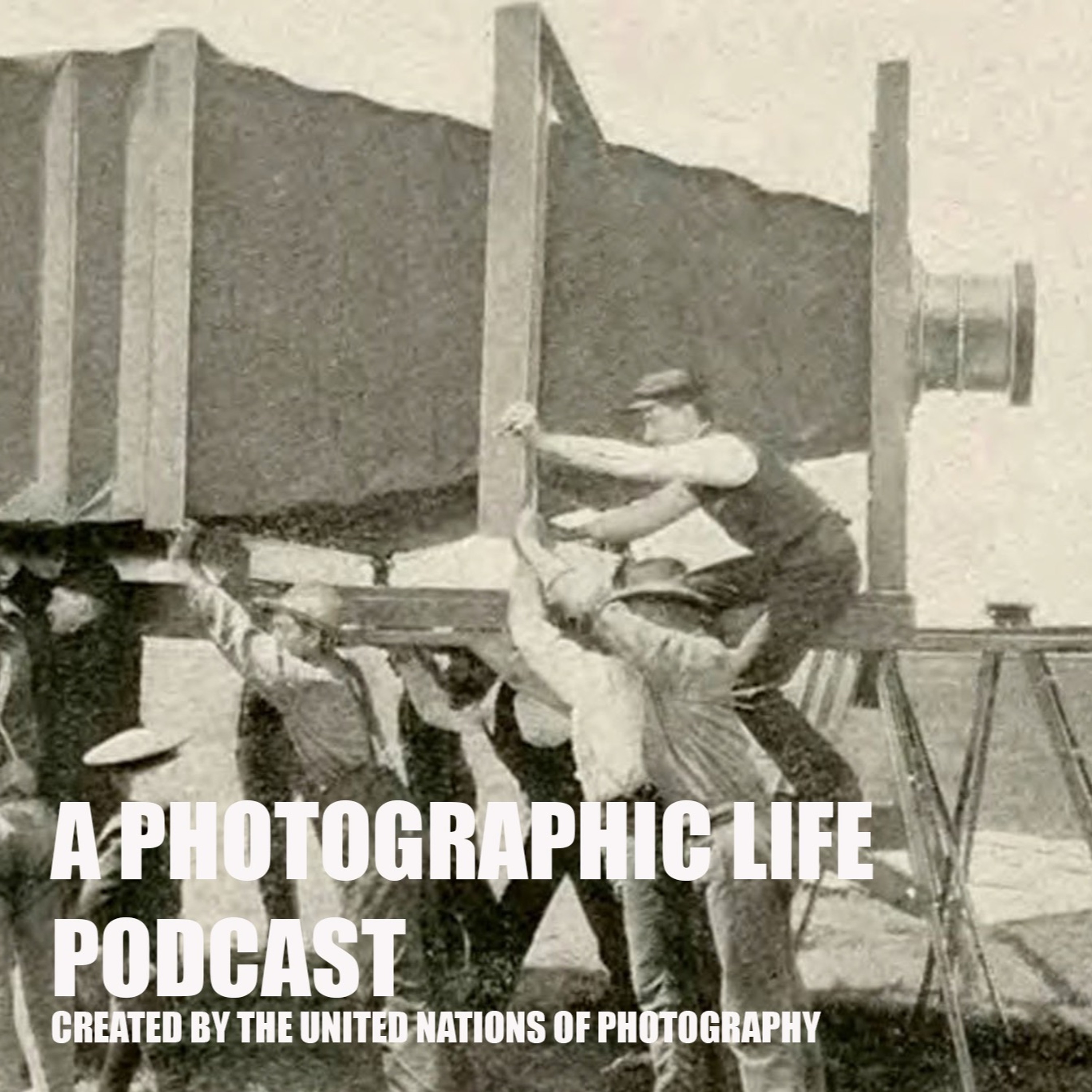
In episode 29 UNP founder and curator Grant Scott is in his shed considering dyslexia amongst the photographic community, whether the expectation for writing to support photography is necessary, and where photographers are today with the moving image.
Plus this week Grant re-visits a recorded conversation from 2011 with legendary photographer David Bailey. In this brief edited extract Bailey uses some strong language to deliver his thoughts on how people see him, the importance of cameras to photography, and the problems of achieving success early on in his career. As always with Bailey he doesn't mince his words!
In 1959, Bailey became a photographic assistant at the John French studio, and in 1960, he was a contracted as a fashion photographer for British Vogue magazine. Along with Terence Donovan and Brian Duffy, Bailey captured and helped create the 'Swinging London' of the 1960s. The three photographers socialised with actors, musicians and royalty, and found themselves elevated to celebrity status, named by fellow photographer Norman Parkinson 'The Black Trinity'.
'Swinging London' was aptly reflected in his Box of Pin-Ups(1964): a box of poster-prints of 1960s celebrities including Terence Stamp, The Beatles, Mick Jagger, Jean Shrimpton, Cecil Beaton, Rudolf Nureyev, Andy Warhol and notorious East End gangsters, the Kray's. Strong objection to the presence of the Krays by fellow photographer, Lord Snowdon, was the major reason no American edition of the Box was released, and that a second British edition was not issued.
Bailey's ascent at Vogue was meteoric and, at the height of his productivity, he shot 800 pages of Vogue editorial in one year. Since 1966, Bailey has also directed several television commercials and documentaries. From 1968 to 1971 he directed and produced TV documentaries titled Beaton, Warhol and Visconti. As well as fashion photography, Bailey photographed album sleeve art for musicians including The Rolling Stones.
In 1976, Bailey co-published Ritz Newspaper. In 1985, he documented the Live Aid concert at Wembley Stadium. In 1995 he directed and wrote the South Bank Film The Lady is a Tramp featuring his wife Catherine Bailey. In 1998 he directed a documentary, Models Close Up, commissioned by Channel 4. In 2012, the BBC made a film of the story of his 1962 New York photoshoot with Jean Shrimpton, titled We'll Take Manhattan. He continues to work for a variety of editorial clients including Vogue and publish books of work from his archive and of new work. He does not have a website for his work.
You can also access and subscribe to these podcasts at SoundCloud https://soundcloud.com/unofphoto on iTunes https://itunes.apple.com/gb/podcast/a-photographic-life/id1380344701 on Player FM https://player.fm/series/a-photographic-life and Podbean www.podbean.com/podcast-detail/i6uqx-6d9ad/A-Photographic-Life-Podcast
Grant Scott is the founder/curator of United Nations of Photography, a Senior Lecturer in Professional Photography at the University of Gloucestershire, a working photographer, and the author of Professional Photography: The New Global Landscape Explained (Focal Press 2014) and The Essential Student Guide to Professional Photography (Focal Press 2015). His next book #New Ways of Seeing: The Democratic Language of Photography will be published by Bloomsbury Academic in January 2019.
His documentary film, Do Not Bend: The Photographic Life of Bill Jay will be screened across the UK and the US in 2018.
© Grant Scott 2018
view more
More Episodes
A Photographic Life - 147: Plus Endia Beal
 2021-02-12
2021-02-12
 2021-02-12
2021-02-12
A Photographic Life - 145: Plus Mark Klett
 2021-02-03
2021-02-03
 2021-02-03
2021-02-03
A Photographic Life - 144: Plus John Bulmer
 2021-01-27
2021-01-27
 2021-01-27
2021-01-27
A Photographic Life - 142: Plus Joseph Szabo
 2021-01-13
2021-01-13
 2021-01-13
2021-01-13
A Photographic Life - 141: Plus Buku Sarkar
 2021-01-06
2021-01-06
 2021-01-06
2021-01-06
A Photographic Life - 135: Plus Paul Lowe
 2020-11-25
2020-11-25
 2020-11-25
2020-11-25
A Photographic Life - 131: Plus Olivia Rose
 2020-10-28
2020-10-28
 2020-10-28
2020-10-28
012345678910111213141516171819
Create your
podcast in
minutes
- Full-featured podcast site
- Unlimited storage and bandwidth
- Comprehensive podcast stats
- Distribute to Apple Podcasts, Spotify, and more
- Make money with your podcast
It is Free
- Privacy Policy
- Cookie Policy
- Terms of Use
- Consent Preferences
- Copyright © 2015-2024 Podbean.com






